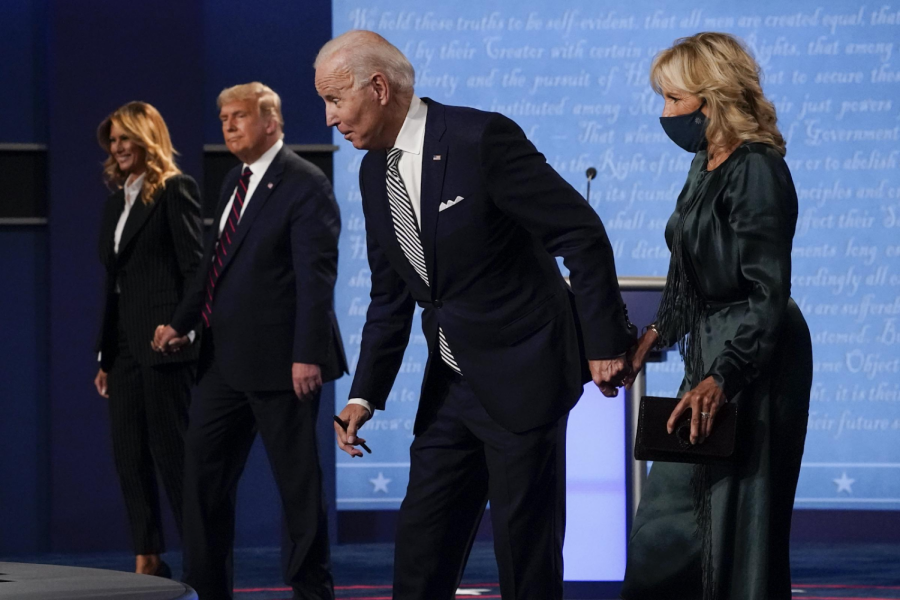U.S. Election Polls: The Leading Candidate
Pollsters are gauging the mood of the nation, and results are coming in with astounding numbers.
As election day creeps closer, polling companies are scrambling to scope out the voting field by asking U.S. voters which candidate they support. According to the data gathered by numerous state and local polls, Democratic presidential nominee, Joe Biden, is holding an emphatic lead. This convergence in polls is disadvantageous for President Trump, whose re-election is at stake.
Biden continues to hold a consistent lead throughout the presidential race – a distinct contrast from the 2016 Democratic candidacy, when polls were evidently more erratic. FiveThirtyEight’s national poll forecast places a 10.6 percentage point difference between the candidates, with President Trump tailing. RealClearPolitics has a similar calculation of approximately 10.0 percentage points.
According to The Independent, “Several states – including some that president Trump won in 2016 – have emerged as key battlegrounds that election analysts have argued must be won by the candidate to win the presidency.” Swing states are especially significant because their political division can crucially impact the outcome of the election. Both presidential candidates are paying close attention to these battleground states, campaigning rigorously to win the popular vote.
Former vice president, Joe Biden, is pulling the lead in terms of swing states, grasping 10 out of the 11, according to national polls. Trump may be falling behind Biden, but in states like Florida and Texas, the parties are competing in a tight race. USA Today says, “The former vice president would need to carry every state that Hillary Clinton won in 2016 and flip Michigan, Wisconsin and Pennsylvania, each won by Trump four years ago.”
However, winning the popular vote doesn’t equate with winning the electoral college, much less the election at all.
This case proved to be true when former presidential candidate, Hillary Clinton, won the national popular vote by almost 3 million voters, yet lost the election due to the distribution of electoral votes in 2016.
Although predictions are looking far from favorable for President Trump, many voters are bringing up the similar forecasts from the 2016 election and his surprising victory. “I don’t trust polling,” Michigan Rep. Debbie Dingell recently told The Atlantic. “I don’t believe that Biden is 16 points up in Michigan; it’s the same people who said Hillary had it in the bag.”
Subsequently, political scientists and pollsters are reassuring the nation that following the outcome of the 2016 election, the methodology of how polls are conducted changed to improve accuracy. According to The Guardian, “This year, the poll was not only looking to the most familiar categories for insights on voter behavior – gender, age, region, party and race – but had also added one more category: educational attainment.”
Polls predicting the outcome of the electoral college votes are also being conducted, and they also display a clear primacy. The Economist’s election coverage model predicts a 91% chance of winning the electoral college for Biden and a 9% chance for Trump. That’s about 343 votes for the democratic candidate and 195 for the republican candidate. With a need for 270 electoral college votes to win the election, Biden is supposedly ahead in this field as well. The Economist also predicts a win of 99% of the popular vote for Joe Biden.
Joe Biden’s lead in polls has grown to an extensively large mass, however, President Donald Trump could still make up a lot of ground.
This November 3rd, use your voice – and for those who can, VOTE.


